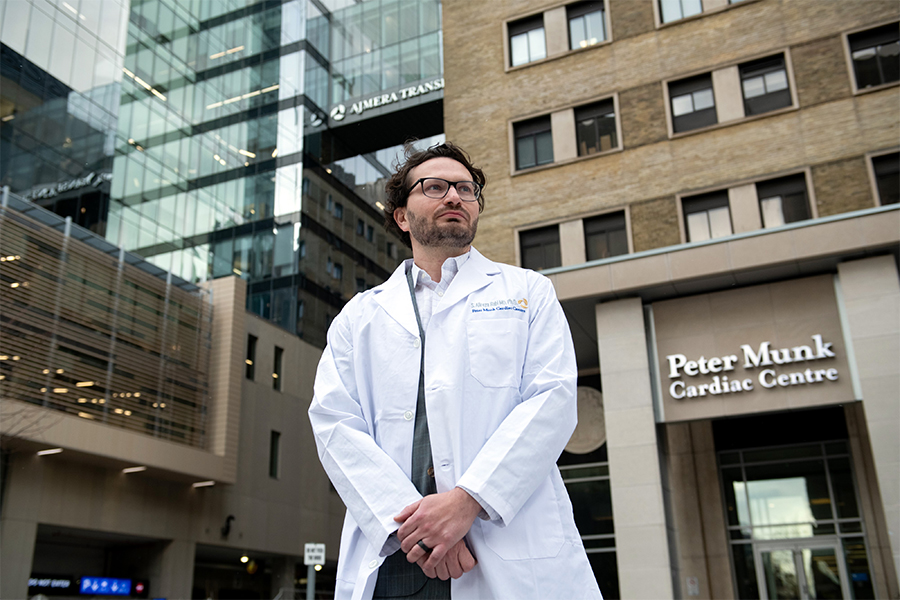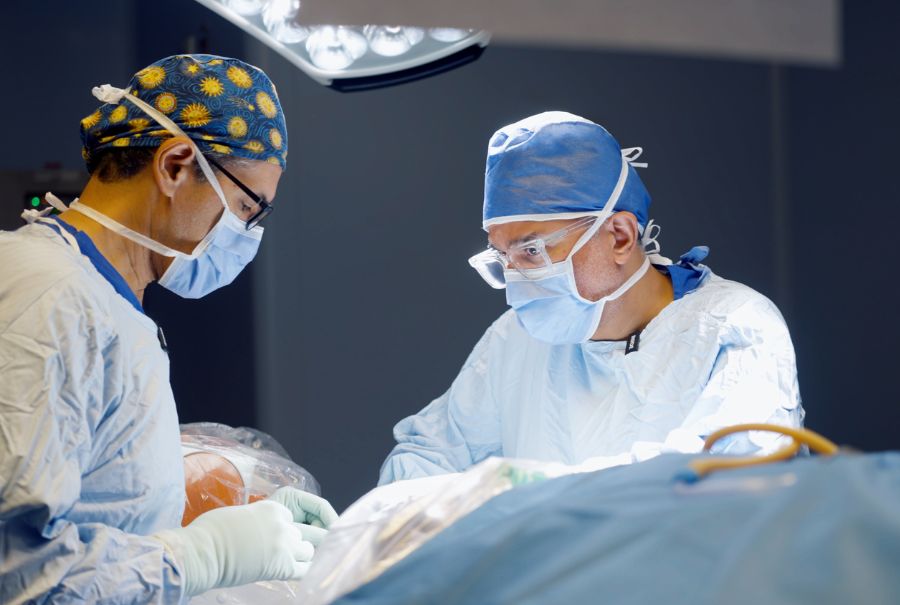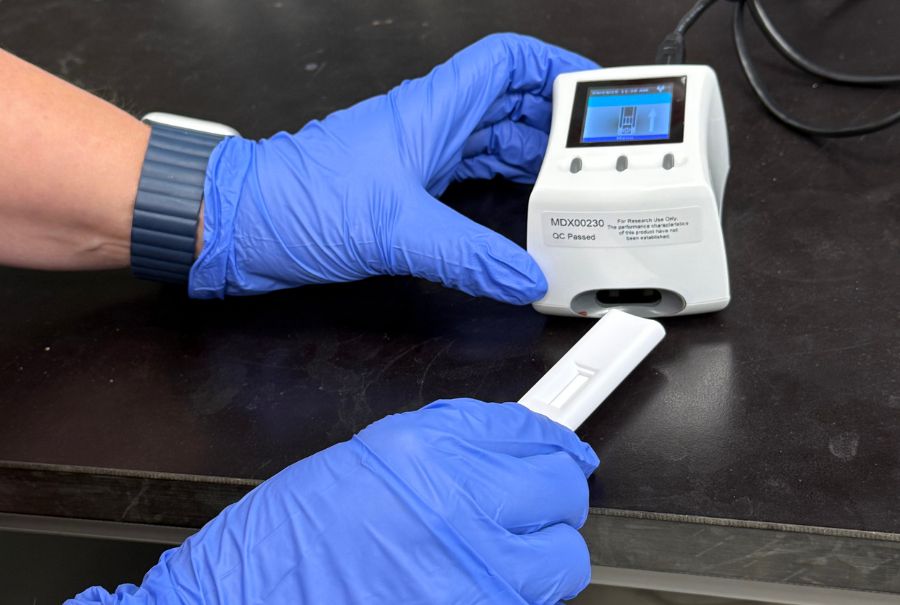Members of the team leading this innovative research project include, (L to R), Mary Vyas, President at PSC Partners Canada, Drs. Sonya MacParland, Senior Scientist at UHN’s Ajmera Transplant Centre, Amanda Ricciuto, staff gastroenterologist at SickKids, and Gary Bader, affiliate scientist at the Princess Margaret Cancer Centre. (Photo: UHN)
A team led by UHN’s Ajmera Transplant Centre, in partnership with the Donnelly Centre for Cellular and Biomolecular Research at University of Toronto (U of T), The Hospital for Sick Children (SickKids) and PSC Partners Seeking a Cure, has received four-year funding of US$2 million from the Chan Zuckerberg Initiative to research a rare inflammatory pediatric disease.
What is unique about this project is that a patient partner organization, PSC Partners Seeking a Cure, is part of the research team as a co-principal investigator and as a funding recipient.
Patient partners will provide input throughout the study, including study design and priority setting, from the initiation of the grant writing to knowledge translation and dissemination of the results.
“Beyond incorporating the patient perspective in research design, our partners ensure that our work is grounded in the patient experience,” says Co-Principal Investigator Dr. Sonya MacParland, Senior Scientist with the Ajmera Transplant Centre and associate professor in the Departments of Laboratory Medicine and Pathobiology (LMP) and Immunology at U of T.
“Team-based science is the future,” says team member and surgeon Dr. Ian McGilvray, who is Head of Liver and Pancreas Surgery at UHN’s Sprott Department of Surgery, a surgeon and scientist at the Ajmera Transplant Centre, and associate professor in the Department of Surgery at U of T.
“All too often, we have been guilty of working alone or in silos. It’s when we collaborate that we push science forward far more quickly.”
“This grant marks a turning point not just for our rare disease organization, but for the broader rare disease research landscape in emphasizing the value patient partners can bring to research,” says Co-Principal Investigator Dr. Ruth-Anne Pai, Director of Research Strategy at PSC Partners Seeking a Cure.
“At PSC Partners, we are thrilled to join this incredible research team working collaboratively towards a cure for PSC,” she adds.
Such a study ‘requires multi-centre coordination’
The patient partnership will also be supported by Toronto-based PSC Partners Canada.
“Receiving a diagnosis of PSC is devastating,” says Mary Vyas, President at PSC Partners Canada, who is also a parent of a young adult living with PSC. “With no approved treatments, the best patients can hope for is a liver transplant and increased screening for early detection of potential associated cancers.
“It is our mission to change this.”
Primary sclerosing cholangitis (PSC) is a rare, immune-mediated liver disease, whereby, for reasons that are not fully understood, the immune system generates a dysregulated inflammatory response that damages the liver. It affects one in 500,000 children, and up to one in 100,000 adults every year.
The condition causes inflammation in the bile ducts, leading to scarring of the liver. Most patients end up needing a liver transplant to survive.
Currently, very little is known about how PSC develops on a cellular level. However, most patients with PSC also have inflammatory bowel disease (IBD).
This research team is trying to understand the IBD link by finding shared cellular dysfunction in IBD and PSC. Finding these shared pathways could potentially lead to interventions that prevent the development or progression of PSC.
“PSC is such a rare condition that studying the cellular basis of its development requires multi-centre coordination,” says Co-Principal Investigator Dr. Gary Bader, affiliate scientist at the Princess Margaret Cancer Centre and professor at U of T’s Donnelly Centre for Cellular and Biomolecular Research.
“What is incredibly exciting and novel about this proposal is that it aims to study the liver and gut jointly,” says Co-Principal Investigator Dr. Amanda Ricciuto, staff gastroenterologist at the Hospital for Sick Children and assistant professor in the Department of Pediatrics at U of T.
“This truly has the potential to unlock knowledge of key pathophysiological processes underlying the disease, and bring us closer to developing therapies.”
This work was supported in part by donors to UHN Foundation.


